Solving “My Portable AC Keeps Tripping the Breaker”: Steps and Tips
“Sweating through the summer because your portable AC keeps tripping the breaker? You’re certainly not alone!” says John Parker, the friendly expert with two decades of HVAC experience. Countless homeowners frequently grapple with this exasperating problem, particularly when the heat is relentless. Understanding the causes behind this power-tripping trouble is the key to a cool and mishap-free summer, and learning about the role of circuit breakers in home safety can provide valuable insights. For more information, visit https://hometeamelectric.com/the-role-of-circuit-breakers-in-home-safety/.
Delving deep into AC associated headaches, this intuitive guide unpacks why breakers trip in the first place. From overloaded circuits to faulty wiring, an array of reasons could be responsible. But don’t worry! We won’t let you fry in uncertainty.
Along with causes, we’ll guide you through practical, easy-to-comprehend solutions that work for everyone—even if you’re not too handy. Stick with us, and those pesky power cuts will be a thing of the past!”
Understanding Why Your Portable AC Keeps Tripping the Breaker
Ever wonder why your portable AC keeps tripping the breaker? Let’s break it down together and dive into some essential technical know-how.
How Circuit Breakers Work
Alright, if you’re pulling your hair out because your portable AC keeps tripping the breaker, understanding circuit breakers is your saving grace. Imagine circuit breakers as your home’s personal bodyguards. They are these nifty devices that halt electrical flow when things go haywire and the current spikes beyond safe levels. Think of them as a safety net, stopping potential fires and damage to your electrical setup. They detect overcurrent and essentially throw a temper tantrum by shutting off, which is their way of saying they’re protecting your home from overheating issues.
Importance of Circuit Breakers
Grasping why circuit breakers are important can shift your perspective on your portable AC tripping the breaker. Circuit breakers aren’t just there to annoy you; they play a pivotal role in shielding your home from electrical fires and appliance damage due to overcurrent. Picture them as bouncers at a club, making sure the crowd doesn’t get too rowdy. These gadgets ensure your home’s wiring and devices don’t go overboard on electrical load, keeping your property and personal safety in check.
Typical Household Circuit Ratings
Now, let’s talk typical household circuit ratings—and trust me, it’s simpler than it sounds. Most U.S. homes feature circuits rated at either 15A or 20A. Think of it like this: older homes usually have 15A breakers, while newer or more power-demanding zones like kitchens often boast 20A breakers. Knowing your home’s circuit ratings is like knowing your car’s fuel capacity; it helps you manage your electrical load better. This is especially critical for high-wattage gadgets like your trusty portable AC unit.
If your portable AC keeps tripping the breaker, remember that it’s a safeguard feature designed to protect you. Ensure the circuit can handle the load, and keep your AC well-maintained to knock out these nuisances. And hey, for the tougher problems, don’t hesitate to ring up a professional; it’s always a smart call.
Common Causes of Portable AC Breaker Trips
Sometimes, just when you need your portable AC the most, it decides to trip the breaker. Let’s look at some common culprits that might be causing this frustrating issue.
Excessive Current Draw
- Portable AC units can demand more electricity than a circuit can safely provide, especially if you’ve got multiple devices sharing the same circuit.
- This problem is often seen in older or inefficient models that might consistently push the circuit to its limit. If that sounds familiar, it could be time for an upgrade.
Initial Surge Current from Compressor
- During startup, portable AC units generate a high surge of current as the compressor begins its cycle.
- This initial surge can momentarily exceed the circuit’s safe capacity, causing the breaker to trip. It’s like a sudden rush at the gate that’s too powerful to handle all at once.
Overloaded Circuits with Other Devices
- Connecting an AC unit to an already heavily used circuit can lead to breaker trips.
- Other devices like TVs, lamps, and computers contribute to the total current draw, potentially pushing it past the breaker’s rating. Sometimes, unplugging a couple of things can do wonders.
Faulty or Overly Sensitive Breaker
- Old or damaged breakers may trip more frequently than they should, even under normal loads.
- Manufacturing defects or just plain wear and tear can make breakers overly sensitive, resulting in premature trips when things are just fine.
Wiring Issues
- Loose or Corroded Wires
- Loose electrical connections can heat up and cause the breaker to trip as a protective measure.
- Corroded wires increase resistance and heat, leading to frequent breaker trips. It’s like trying to run water through a clogged pipe.
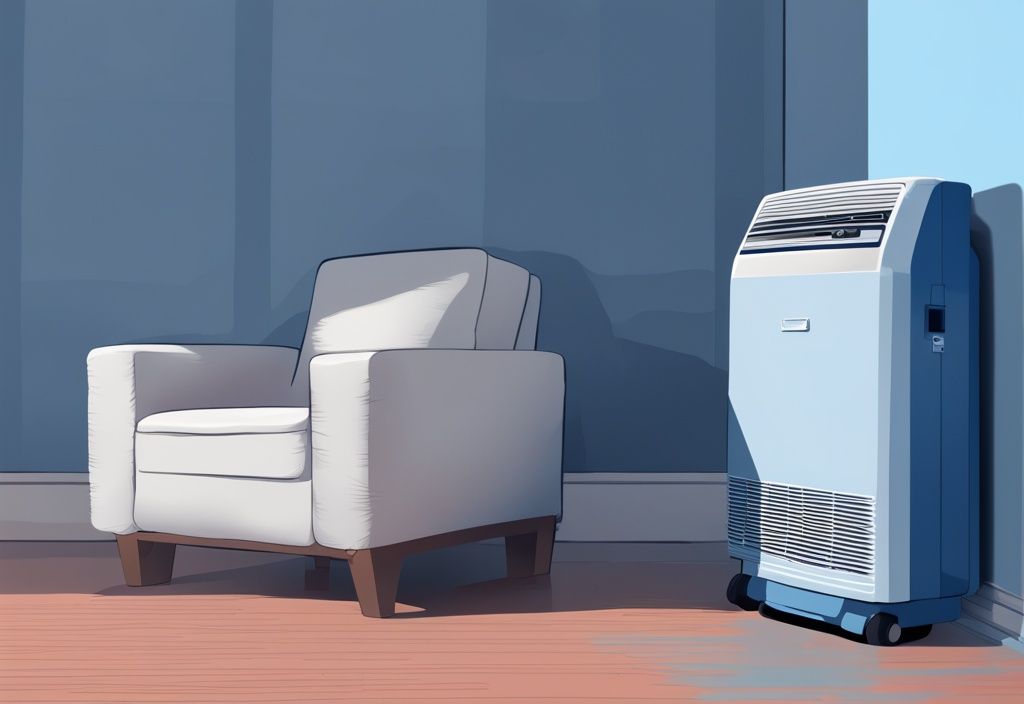
- Inadequate Wiring for Load
- Some home wiring may not support the high current demands of a portable AC unit.
- Undersized wires can get too hot, prompting the breaker to trip as a safety precaution.
AC Unit Problems
- Dirty Air Filter
- A clogged filter makes the blower work harder and draw more power, potentially overloading the circuit.
- Dirty Outside Unit
- If the outside unit is blocked, it can’t dissipate heat properly, causing the AC unit to work much harder and draw more current.
Invalid YouTube video ID
- Shorted Motor
- A motor short can cause a significant spike in current draw, leading to breaker trips.
- Aging or Damaged Compressor
- Older compressors tend to consume more electricity, especially during startup, which could trip the breaker.
Why Your Portable AC Keeps Tripping the Breaker and How to Fix It
Reducing Circuit Load
- Turn off or unplug other devices: To prevent overloading the circuit, turn off or unplug other devices sharing the same circuit as your portable AC unit. This ensures that the AC unit operates as the primary or sole high-draw device on that circuit.
- Main device on the circuit: Confirm that the AC is the main or only high-draw device. This minimizes the risk of the breaker tripping due to excessive load.
Plugging AC Unit into a Different Circuit
- Use a different circuit: If possible, plug your portable AC unit into a circuit with a 20A rating, as these are more capable of handling higher loads.
- Avoid high-draw circuits: Ensure the new circuit is not shared with other high-draw appliances such as microwaves, refrigerators, or televisions to spread out the electrical load evenly and prevent tripping the breaker.
Checking and Replacing Circuit Breaker
- Consulting an Electrician: It’s advisable to get a professional assessment to determine whether the existing breaker needs replacing or upgrading. A certified electrician can safely handle this process.
- Assessing Breaker Capacity: Evaluate if the current circuit breaker matches the load requirements of your portable AC unit. If necessary, consider replacing old or faulty breakers that trip easily.
Using a Commercial-Grade Extension Cord
- Temporary Use: When an immediate solution is needed, use a commercial-grade 12-gauge extension cord rated for at least 15A. This type of cord can temporarily mitigate the issue but should not be a permanent fixture.
- Proper Rating: Ensure the extension cord is appropriately rated to handle the electrical load of your portable AC unit without causing voltage drops or overheating.
Installing a Dedicated Circuit
- Dedicated Circuit Installation: Consider installing a dedicated circuit specifically for your portable AC unit. This ensures that the unit has sufficient power supply and significantly reduces the likelihood of overloading.
- Isolating High-Draw Devices: By having your AC unit on its own circuit, you prevent interference and overloading from other devices, leading to a more stable and efficient electrical setup.
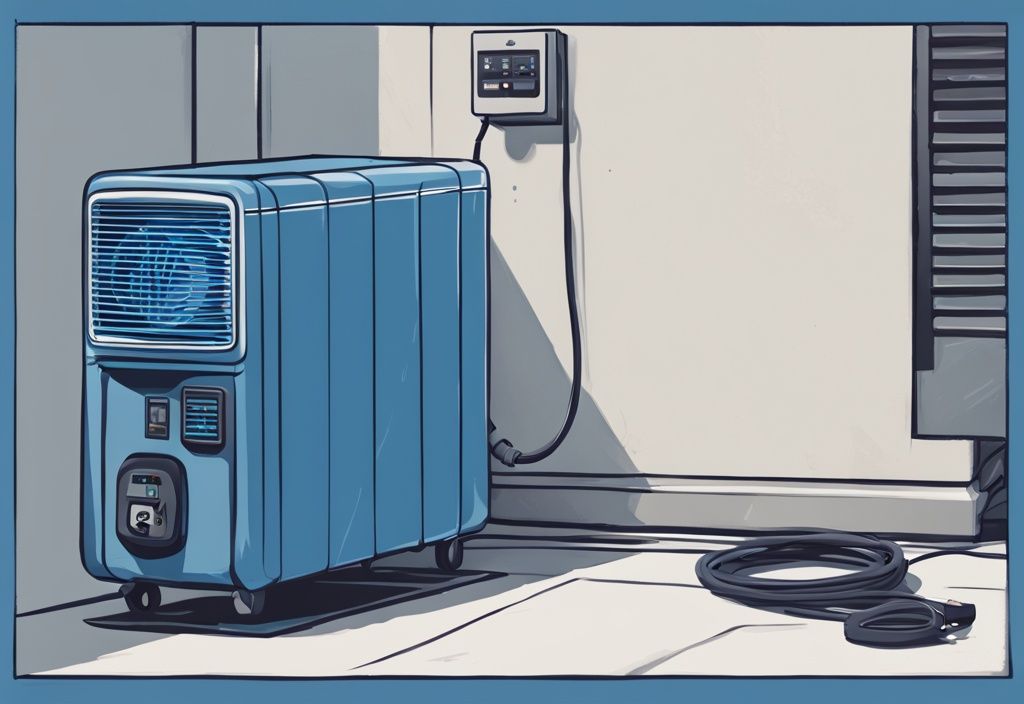
Working on the AC Unit
- Changing Air Filter: Regularly replacing dirty air filters can reduce the workload on the blower, thereby decreasing the current draw and lessening the chances of tripping the breaker.
- Cleaning the Outside Unit: Ensure the outside condenser is clean and free from debris. This helps in optimal heat dispersion and lets the unit operate more efficiently, lowering the electrical load.
Professional Assistance
- AC Technician Inspection: Have a certified AC technician inspect your unit for any operational issues such as electrical shorts or motor problems that could be causing the breaker to trip.
- Electrical Short Repairs: Professionals can repair or replace damaged or shorted components, ensuring your AC unit operates safely and efficiently.
- Installing a Hard Start Kit: A hard start kit can help reduce the initial surge of current from the compressor, which minimizes the risk of breaker trips during startup.
- Compressor Replacement: If your compressor is aging or grounded, replacing it can significantly reduce the current draw and prevent frequent tripping of the breaker.
Specific Living Situation Solutions
Having trouble with your portable AC keeps tripping the breaker? This is a common issue, especially in apartments with older electrical systems. Here are some practical tips and solutions to help you manage this electrical conundrum.
Tips for Apartment Dwellers
Working with Property Management
- Engage Property Management: If your portable AC keeps tripping the breaker, don’t hesitate to contact your property management. They can inspect your apartment’s electrical setup and possibly suggest necessary upgrades. In my experience, proactive communication can make all the difference.
- Circuit Evaluation: Ask for a thorough evaluation of your apartment’s circuits. For instance, understanding error codes such as the Mitsubishi 4250 error code can help in addressing potential issues promptly. You’ll want to make sure they’re not overloaded and can handle the load of your portable AC unit. Just the other day, a client of mine discovered their circuits were outdated, and a simple upgrade solved their problem.
Addressing Electrical Capacity in Apartments
- Electrical Load Assessment: Verify if the apartment’s electrical system can support your portable AC safely. Sometimes, the current setup just isn’t adequate, and property management might need to step in for alterations. I recall a time when a small adjustment to the electrical panel made a huge difference for a tenant.
- Upgrading Circuits: If your circuits need an upgrade, request more robust ones, especially in rooms where you use the AC the most. This can effectively prevent breaker trips and ensure safe operation. It’s like giving your apartment a little bit of a power boost.
Using a Power Cut-Off Device
- Monitoring Current Draw: Consider installing a power cut-off device to monitor your AC unit’s electrical consumption. These gadgets automatically cut off the power if the current exceeds safe limits, which can be a real game-changer in preventing breaker trips.
- Preventing Overload: These devices manage the AC’s power usage dynamically, ensuring it doesn’t exceed the circuit’s capacity. This is particularly handy in older apartments with limited electrical capabilities. If you’re facing issues with your AC and suspect an overload, you might want to check the Rheem reset button for a quick solution. Think of it as a safety net for your power system.
Why Your Portable AC Keeps Tripping the Breaker
Sometimes, dealing with a portable AC that constantly trips the breaker can feel like a never-ending cycle of frustration and worry. Understanding the underlying causes and safety considerations can help keep your home comfortable and safe.
Dangers of Repeatedly Resetting the Breaker
- Constantly resetting the breaker can wreak havoc on the electrical components. This not only puts a dent in your wallet with repair costs but can also mess up other gadgets connected to the same circuit.
- Fire hazards are no joke. Resetting the breaker repeatedly without fixing the actual problem can cause overheating, leading to fire risks. This is a bigger concern in older homes with dated wiring.
- If the breaker keeps tripping, it’s a sign that something bigger is brewing. Ignoring it might mean dealing with more serious issues later, potentially damaging your appliances and your home’s electrical system.
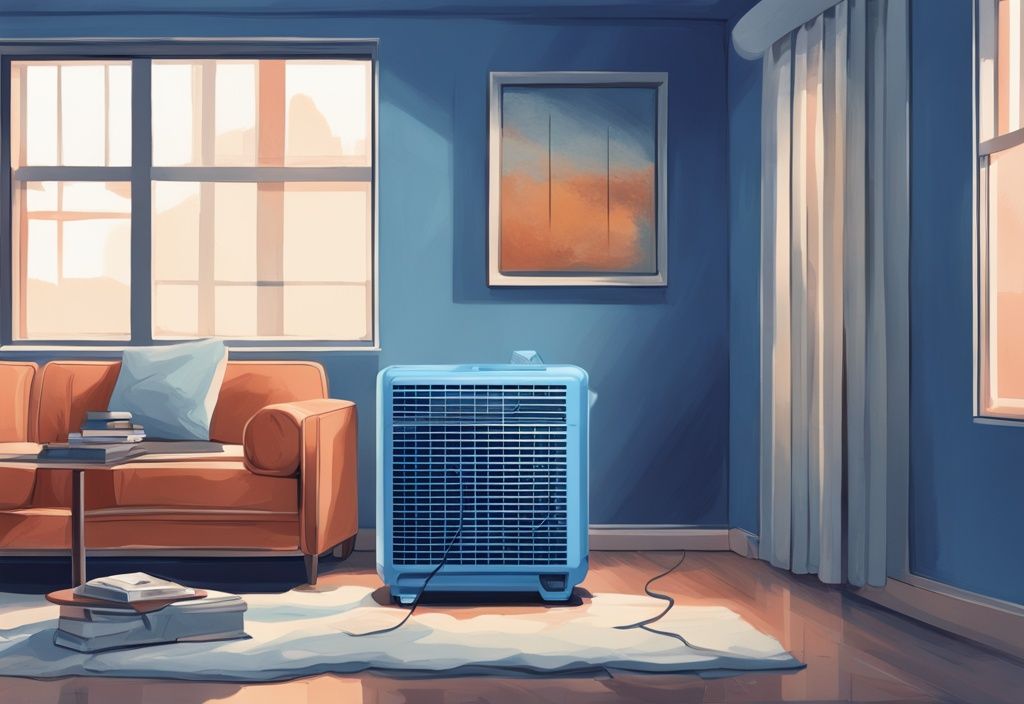
When to Call a Professional
- If the breaker trips persistently, calling in a pro is a smart move. Ongoing issues usually point to problems that need a seasoned eye to diagnose and fix, ensuring your safety and smooth operation.
- If DIY electrical work makes you uneasy, don’t hesitate to get an electrician. Attempting fixes without know-how can lead to serious injuries or more damage.
- Electricians are equipped to handle complex electrical problems. They’ll make sure any repairs or upgrades are done safely and in line with local codes and standards.
Importance of Regular Maintenance
- Giving your portable AC some TLC, like changing filters and cleaning coils, can go a long way in preventing it from drawing too much current. Routine maintenance keeps your unit running efficiently and reduces the chance of breaker trips.
- Having a professional check your AC unit regularly ensures all parts are in top shape. Regular tune-ups can catch small issues before they turn into big, costly ones, keeping your AC working like a charm.
Conclusion
Understanding why “my portable AC keeps tripping the breaker” is critical for maintaining a safe and functional living environment. Circuit breakers are essential safety devices designed to protect your home from electrical overloads. When your portable AC consistently trips the breaker, it signals a potential issue that needs addressing to prevent damage to your electrical system and ensure personal safety.
Proper maintenance and troubleshooting can often resolve these problems.
Regularly checking and maintaining your AC unit, including tasks like filter replacement and coil cleaning, can significantly reduce the risk of breaker trips. Addressing issues such as excessive current draw or overloaded circuits promptly can also help maintain a stable electrical environment.
For persistent or complex issues, consulting professionals is imperative. Electricians can provide a thorough evaluation of your electrical system, while AC technicians can identify and fix any internal problems within the unit itself. This professional intervention not only ensures the problem is correctly diagnosed and resolved but also enhances the longevity and efficiency of your portable AC unit.
In summary, proactive maintenance and prompt professional intervention are key to addressing and preventing issues like “my portable AC keeps tripping the breaker.” Maintaining your AC unit diligently and seeking expert help when necessary will ensure efficient and safe operation, providing peace of mind and comfort in your home.
FAQ
Why does my portable AC keep tripping the breaker?
Common causes include:
- Excessive current draw — Your AC might be pulling more power than your circuit can handle.
- Initial surge from the compressor — When your AC first kicks on, it needs a lot of power, which can trip the breaker.
- Overloaded circuits — Having too many devices plugged into the same circuit might be the culprit.
- Faulty breakers — Sometimes, the breaker itself can be the issue.
- Wiring issues — Loose or poor-quality wiring can lead to breaker trips.
- Problems with the AC unit itself — Internal issues within the unit could also cause the breaker to trip.
How can I prevent my portable AC from tripping the breaker?
Prevention steps:
- Reduce circuit load — Unplug other devices sharing the same circuit to lighten the load.
- Use a dedicated circuit — If possible, ensure your AC has its own circuit.
- Replace or clean filters — A dirty filter can cause your AC to work harder, drawing more power.
- Consult an electrician — Get a professional evaluation for a more in-depth look at any potential electrical issues.
Can using an extension cord affect my portable AC unit?
Yes, it can:
Improper or low-quality extension cords can cause voltage drops and overheating. Always use a commercial-grade, appropriately rated extension cord if necessary. It’s best to plug your AC directly into a wall outlet when possible, as extension cords can introduce risks you don’t want.
What should I do if the breaker trips even after troubleshooting?
Seek professional help:
If you’ve tried all the troubleshooting steps and your AC still trips the breaker, it’s time to call in the experts. Consult an electrician or an AC technician to inspect and possibly repair your electrical system or the AC unit itself. Don’t wait too long because persistent issues can lead to bigger problems.
Is it possible for a dirty air filter to cause a breaker to trip?
Yes, it is possible:
A dirty filter forces the AC to work harder, increasing its current draw and potentially causing the breaker to trip. Make it a habit to check and replace or clean your filters regularly. It’s an easy fix that can prevent a lot of headaches down the road.
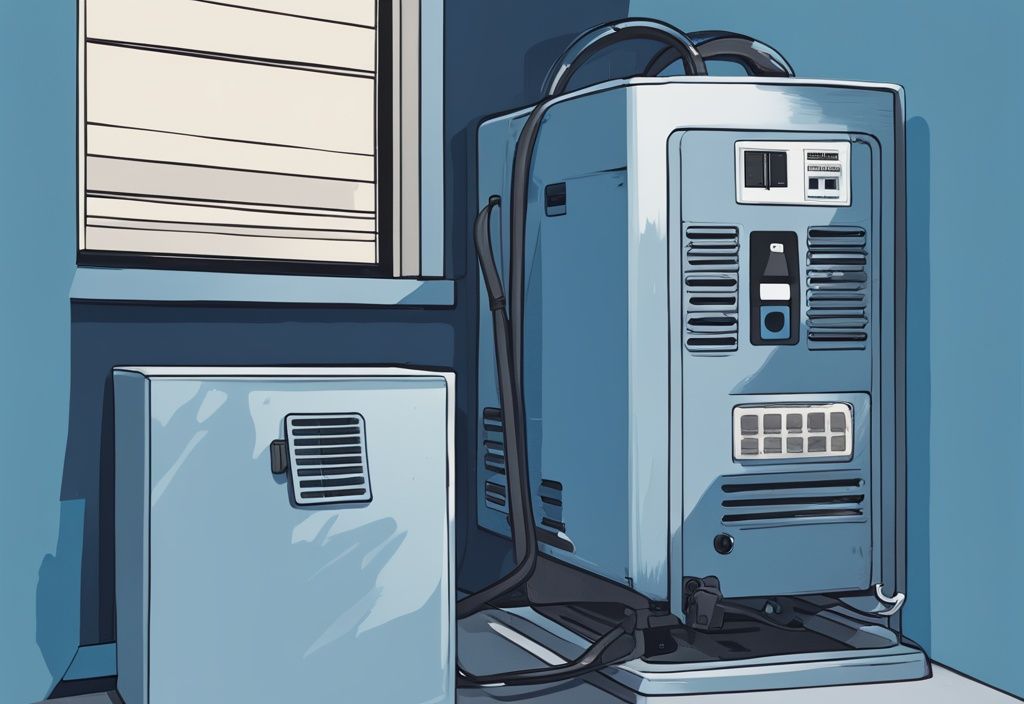
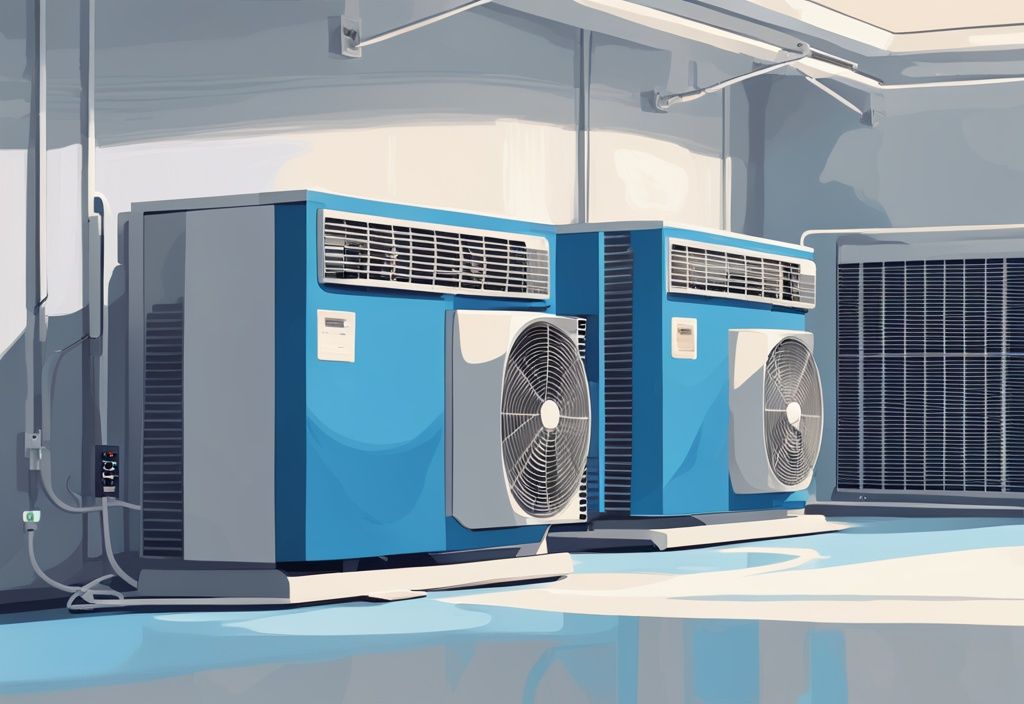
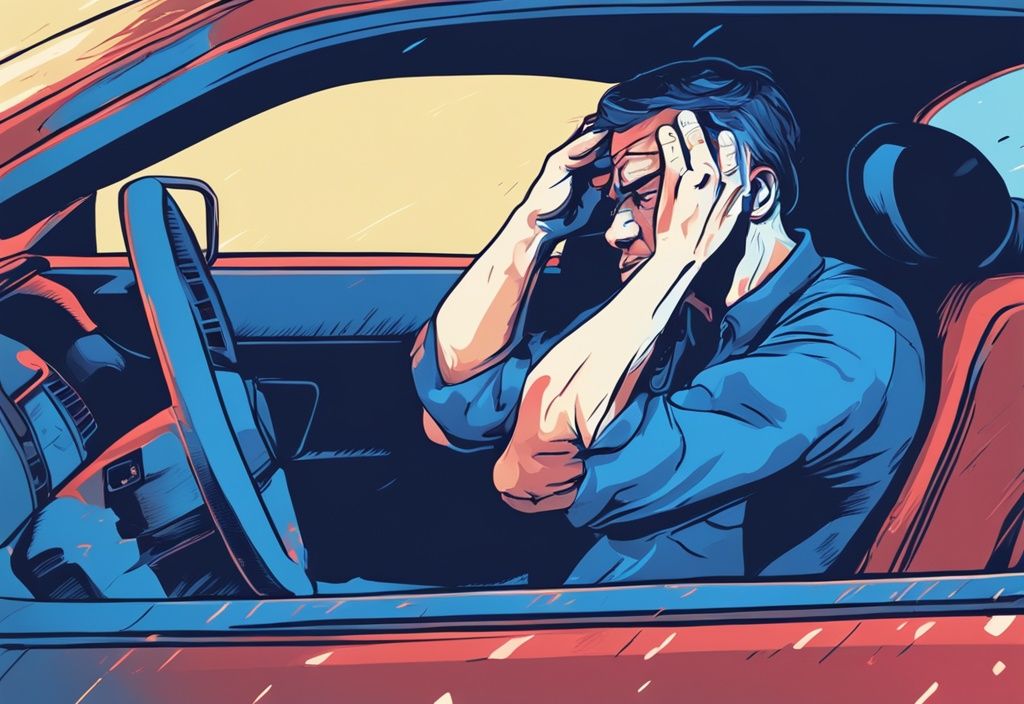
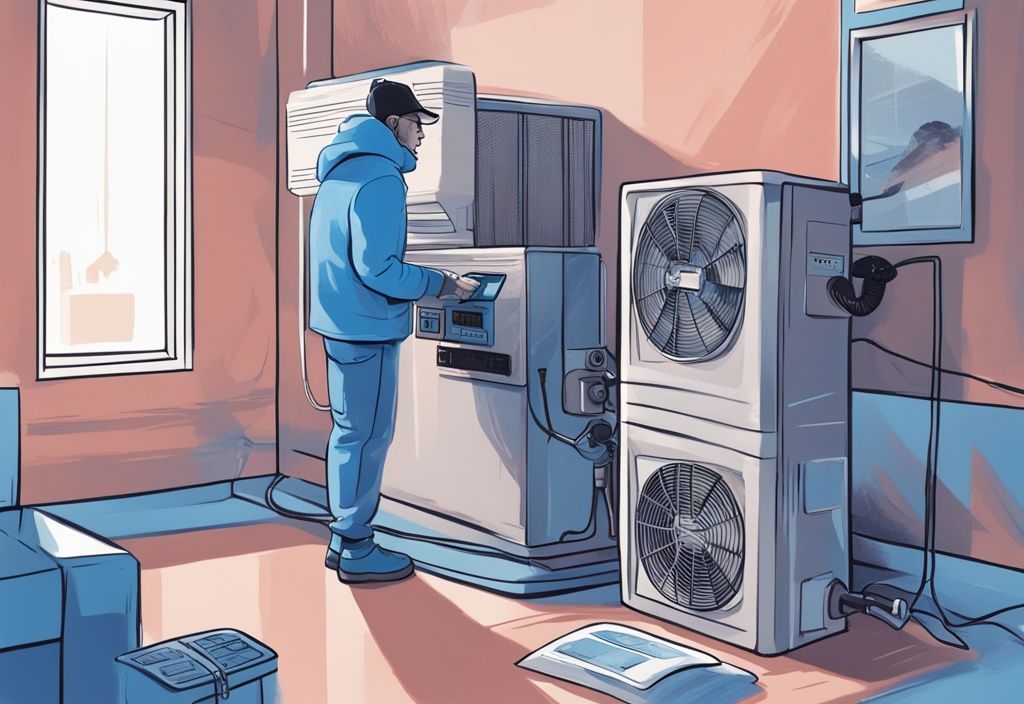
Post Comment